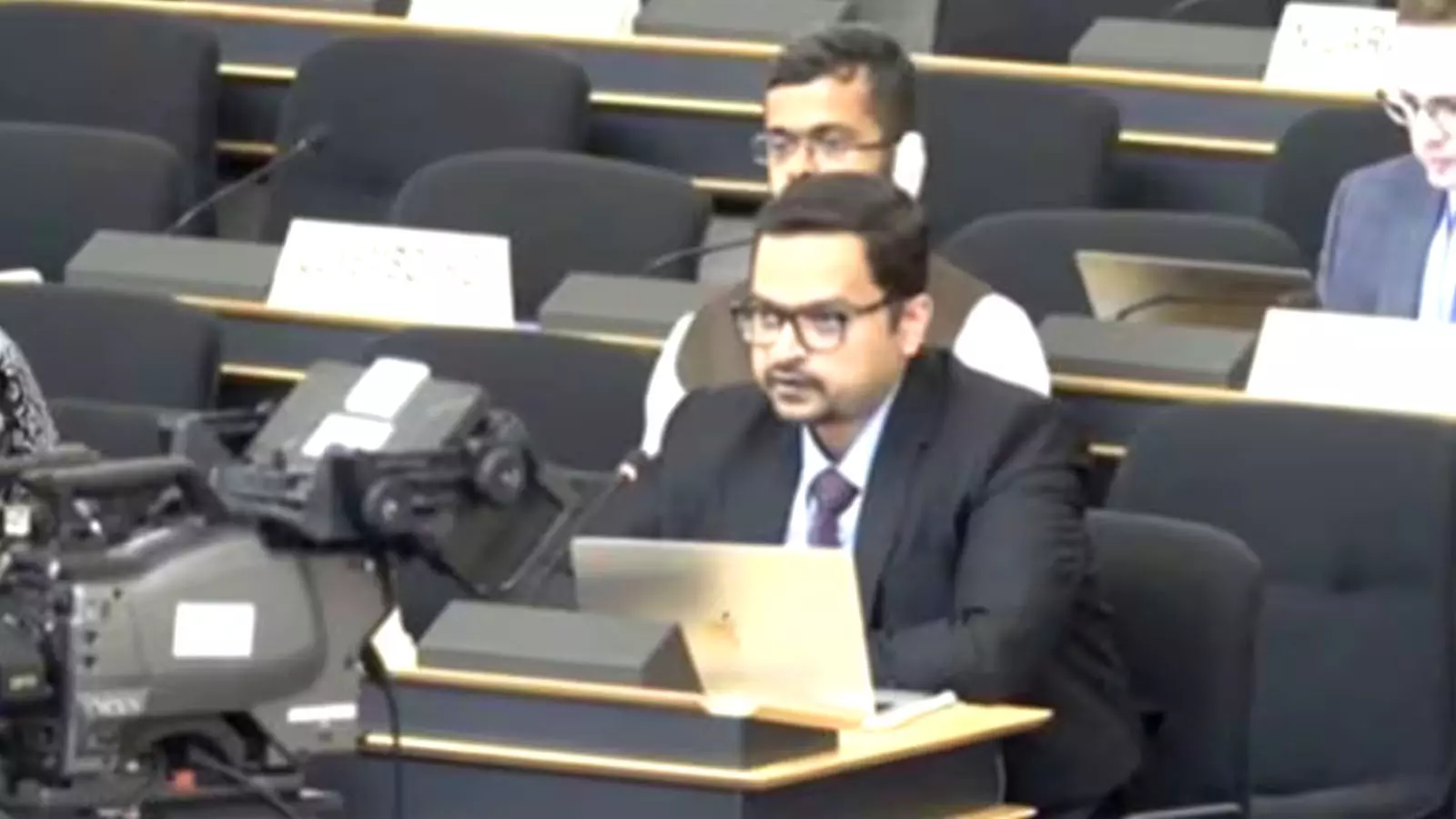
Speaking at the 60th session of the Human Rights Council in Geneva, Indian diplomat Kshitij Tyagi urged Islamabad to focus on rescuing an economy on life support. Photo: PTI
India slams Pakistan at UNHRC, says the country is 'bombing its own people'
Indian diplomat Kshitij Tyagi told Islamabad to address its collapsing economy and human rights record instead of levelling 'baseless' charges against New Delhi

India on Tuesday (September 23) strongly criticised Pakistan at the United Nations Human Rights Council (UNHRC), accusing Islamabad of “bombing its own people” in Khyber Pakhtunkhwa while misusing the forum to level “baseless and provocative” charges against New Delhi.
Speaking at the 60th session of the Human Rights Council in Geneva, Indian diplomat Kshitij Tyagi, Counsellor at the Permanent Mission of India, urged Pakistan to address its collapsing economy and “human rights record stained by persecution” rather than coveting Indian territory.
Also Read: Trump reiterates ending India-Pakistan conflict in UN speech
India slams Pakistan
“A delegation that epitomises the antithesis of this approach continues to abuse this forum with baseless and provocative statements against India,” Tyagi said.
“Instead of coveting our territory, they would do well to vacate the Indian territory under their illegal occupation and focus on rescuing an economy on life support, a polity muzzled by military dominance, and a human rights record stained by persecution, perhaps once they find time away from exporting terrorism, harbouring UN-proscribed terrorists, and bombing their own people,” he added.
He emphasised that the Council must “remain universal, objective, and non-selective” and that its work should be “channelised into forging consensus through a non-politicised and forward-looking approach”.
Also Read: UN: India calls out Pak's 'unwarranted aspersions', 'atrocities' against children
Warning against selective bias
He warned against the growing reliance on country-specific mandates, which, he said, “reinforce perceptions of bias and selectivity” and divert attention from pressing global challenges. India, Tyagi asserted, believes that lasting progress in human rights can only be achieved through dialogue, cooperation, and capacity-building with the consent of the state concerned.
“We are concerned by the continued proliferation of country-specific mandates. Far from advancing the Council’s core mandate, they reinforce perceptions of bias and selectivity. Focussing narrowly on the human rights situation in a few countries distracts us from the urgent and shared challenges the world faces,” the Indian diplomat said.
“We firmly believe that lasting progress can only be achieved through dialogue, cooperation, and capacity-building — always with the consent of the State concerned,” he added.
Also Read: 'No yielding to nuclear blackmail': Jaishankar talks tough on terror at UN
Khyber Pakhtunkhwa blast
Tyagi’s remarks followed reports of a deadly incident in Khyber Pakhtunkhwa, where 24 people, including 10 civilians, were killed in an explosion at a Taliban compound.
Just a day earlier, the Pakistani Air Force allegedly bombed Matre Dara village in Tirah Valley, reportedly leaving at least 30 civilians, including women and children, dead.
The Pakistani Air Force allegedly used China-made J-17 fighter jets to drop eight Chinese-made LS-6 bombs — laser-guided precision munitions — on a village at around 2 am when people were sleeping.
Residents and the provincial branch of the Pakistan Tehreek-e-Insaf (PTI) claimed that the “jet bombing” caused the explosion in the Tirah Valley.
While locals blamed the bombing for the devastation, Pakistani authorities dismissed the claims, stating that there were no aerial strikes on the compound.

